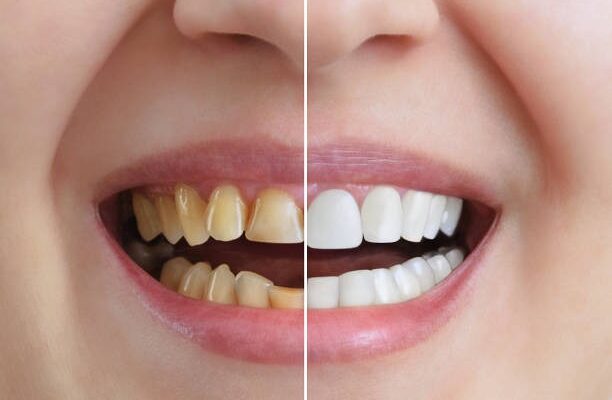Managing diabetes involves a lot more than monitoring blood sugar levels; it impacts various aspects of well-being, including oral health. Elevated glucose levels in the body can create an environment where oral issues can arise, making diabetes management a multi-faceted challenge. This article sheds light on the connection between diabetes and oral health and explores how individuals can maintain a healthy mouth despite these challenges.
How Diabetes Impacts Oral Health
Living with diabetes often means facing multiple health challenges. One less-discussed area is its impact on oral health. Understanding this relationship is critical, as diabetes can lead to several oral issues. Here are some that commonly arise:
-
Gum Disease: The immune system is weakened by diabetes, increasing the risk of gum disease. This condition can damage soft tissues and the bones that support teeth.
-
Dry Mouth: Diabetes may cause reduced saliva production, leading to dry mouth. Saliva is important for protecting teeth from decay and infection.
-
Tooth Decay: High blood sugar levels can increase the risk of cavities and decay, as sugar promotes bacterial growth.
-
Fungal Infections: Conditions like thrush can develop when glucose levels in saliva are high.
-
Delayed Healing: Diabetes can slow down the healing process, affecting recovery after dental procedures.
Effective Management Strategies
Managing both diabetes and oral health may seem daunting, but effective strategies can make it more manageable. Here are some vital steps:
-
Control Blood Sugar: Keeping blood sugar within recommended levels reduces the risk of complications.
-
Practice Good Oral Hygiene: Daily brushing and flossing help control plaque that can turn into tartar, leading to gum disease.
-
Regular Dentist Visits: Routine check-ups can catch problems early and help maintain oral health.
-
Avoid Tobacco: Smoking increases the risk of dental problems when combined with diabetes.
-
Stay Hydrated: Drinking plenty of water helps combat dry mouth and supports overall oral health.
Recognizing Warning Signs
Recognizing early signs of dental issues is key for timely treatment. Look out for indicators such as:
-
Sore or bleeding gums
-
Persistent bad breath
-
Loosened teeth
-
Sores that don’t heal
-
Changes in denture fit
If these symptoms are present, consulting a dentist promptly can help prevent further complications. For those who may have already lost teeth due to advanced gum disease or decay, dental restoration techniques like Texas dental implants offer an effective solution. Implants not only restore the function but also improve the aesthetics of one’s smile, providing a durable and long-term solution.
Available Dental Treatments
Diverse dental treatments are available to address the specific challenges faced by individuals with diabetes. These options are designed to ensure that everyone, especially those who may avoid necessary dental care due to fear or discomfort, can receive appropriate care without stress. For patients looking for a more comfortable experience during complex procedures, sedation implant dentistry can be particularly beneficial. This approach minimizes anxiety and enhances patient comfort, encouraging regular dental visits and the maintenance of oral health.
Diet and Lifestyle Considerations
Diet plays a pivotal role in managing both diabetes and oral health. Here are some dietary tips to support optimal health:
-
Opt for low-sugar, high-fiber foods
-
Limit consumption of acidic and sugary beverages
-
Include healthy fats and lean proteins in meals
This approach not only aids blood sugar management but also supports oral health by providing necessary nutrients like calcium and vitamin D, which are essential for maintaining strong teeth and bones.
Maintaining oral aesthetics is also important for many individuals and cosmetic solutions like teeth whitening offer opportunities to enhance smile appearance. Teeth whitening addresses surface stains effectively, contributing to a cleaner, brighter smile while encouraging better oral care routines.
Addressing Lifestyle Factors
Your lifestyle choices play an important role in managing diabetes and its effects on oral health. People with diabetes need to be especially mindful of how their daily habits can influence both their blood sugar levels and the health of their teeth and gums. By making healthier choices, you can help protect your oral health while also managing your diabetes more effectively.
One effective way to manage stress is through practices like yoga or meditation. These activities can help lower stress levels, which is beneficial for controlling blood sugar. When stress is reduced, it can lead to more consistent healthy habits, such as maintaining a proper dental care routine. Here are some ways to incorporate stress-reducing practices:
-
Set aside time for yoga sessions a few times a week.
-
Try mindfulness meditation to create a sense of calm.
Getting enough sleep is another essential factor in maintaining good health and managing diabetes. Sleep helps the body heal and can improve overall well-being. When you are well-rested, you’re more likely to make healthier choices and take better care of your teeth. Additionally, avoiding excessive alcohol consumption can also benefit your health. Alcohol can affect blood sugar levels and contribute to other health challenges. Instead, consider these alternatives:
Healthy Lifestyle Choices
-
Limit alcohol intake to maintain better control over your health.
-
Choose non-alcoholic beverages or indulge in moderation.
Addressing lifestyle factors is necessary not only for diabetes management but also for supporting oral health. Keeping blood sugar levels stable can help reduce the risk of gum disease and other oral health complications. By making mindful choices about stress management, sleep, and alcohol consumption, you create a foundation for better health overall. Every small change you make can lead to significant benefits for both your body and your dental well-being.
Seeking Support and Resources
Utilizing available resources can aid in managing diabetes and oral health effectively. Consider exploring the following:
-
Diabetes support groups
-
Consultations with dental health professionals familiar with diabetes care
-
Participation in community health programs focused on chronic disease management
Access to a network of support and resources can empower individuals to make informed decisions about their health, potentially leading to better outcomes.
Closing Remarks
The intricate link between diabetes and oral health signifies the necessity of taking proactive measures to manage both effectively. Controlling blood sugar, maintaining rigorous oral hygiene, and seeking regular dental examinations are key components of this management plan. Embracing a balanced diet and healthy lifestyle choices further enhances efforts to prevent oral health complications. By acknowledging this connection and implementing consistent lifestyle practices, individuals with diabetes can achieve enhanced well-being and maintain a healthy, vibrant smile.




